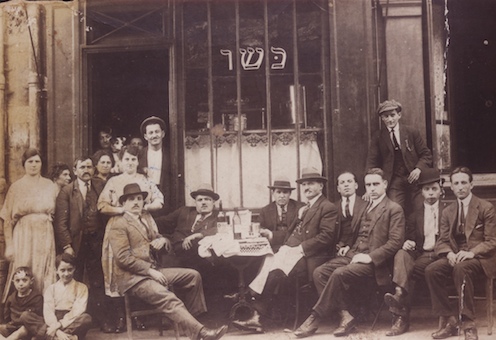Being Jewish in France

Full Description
Yves Jeuland’s extraordinary documentary captures centuries of Jewish life in France in two episodes broadcast on French television to critical acclaim. French Jews have always had a complex relationship to their Frenchness and their Judaism. From revolutionary cries of “Vive la France!” in Yiddish through Vichy’s betrayal of Jewish citizens to the absorption of Mizrahi Jews in the 1960s, French Jews have remained staunchly French. But with the influx of Arab immigrants into France and the French Left’s support for Palestinian human rights (including on the part of some Jews), the French Jewish community has had to adjust to a multicultural society in which it is one of many minorities seeking liberté, egalité and fraternité.
Episode One opens with the controversial Dreyfus Affair, which inflamed passions and anti-Semitic hatred in the country at the turn of the 20th century. As Jews became more assimilated, especially after serving in World War I, they solidified their French identity. The series documents the insidious rise of fascism, leading up to the community’s deportation to concentration camps—with the help of the French police. Episode Two picks up in the aftermath of the Holocaust, when surviving Jews worked towards recovery and regeneration. During the wave of Jewish immigration from North Africa, the Jewish community joined together despite cultural differences among European Jews who had been in France for decades and newly arrived Mizrahi and Magrhebi Jews. Recent arson attacks on synagogues and the rise of anti-Semitic violence have caused some French Jews to reexamine living in France, while others view France as their homeland, in joy or sadness.
Filmmaker Bio(s)
From 2008 Festival: Director, France
Yves Jeuland is a scriptwriter and a director for documentaries broadcasted on French television channels, Canal + and Arte. In 2001 he won the 7 d'or for the best documentary series with his film Paris à tout prix about the 2-year electoral campaign for the capital’s City Council. He was awarded in 2004 the Silver FIPA for his documentary Camarades and the Lia Award at the Jerusalem Film Festival 2007 for Being Jewish in France (Comme un Juif en France). Part of his work includes: Rêves d’énarques (1999), Bleu Blanc Rose about 30 years of gay and lesbian life in Paris (2002), La Paix nom de Dieu shot in Israel and Palestine in 2003 and Le Siècle des Socialistes (2005).
Director(s)
Country(ies)
Language(s)
w/English Subtitle
Release Year
Festival Year(s)
Running Time
185
